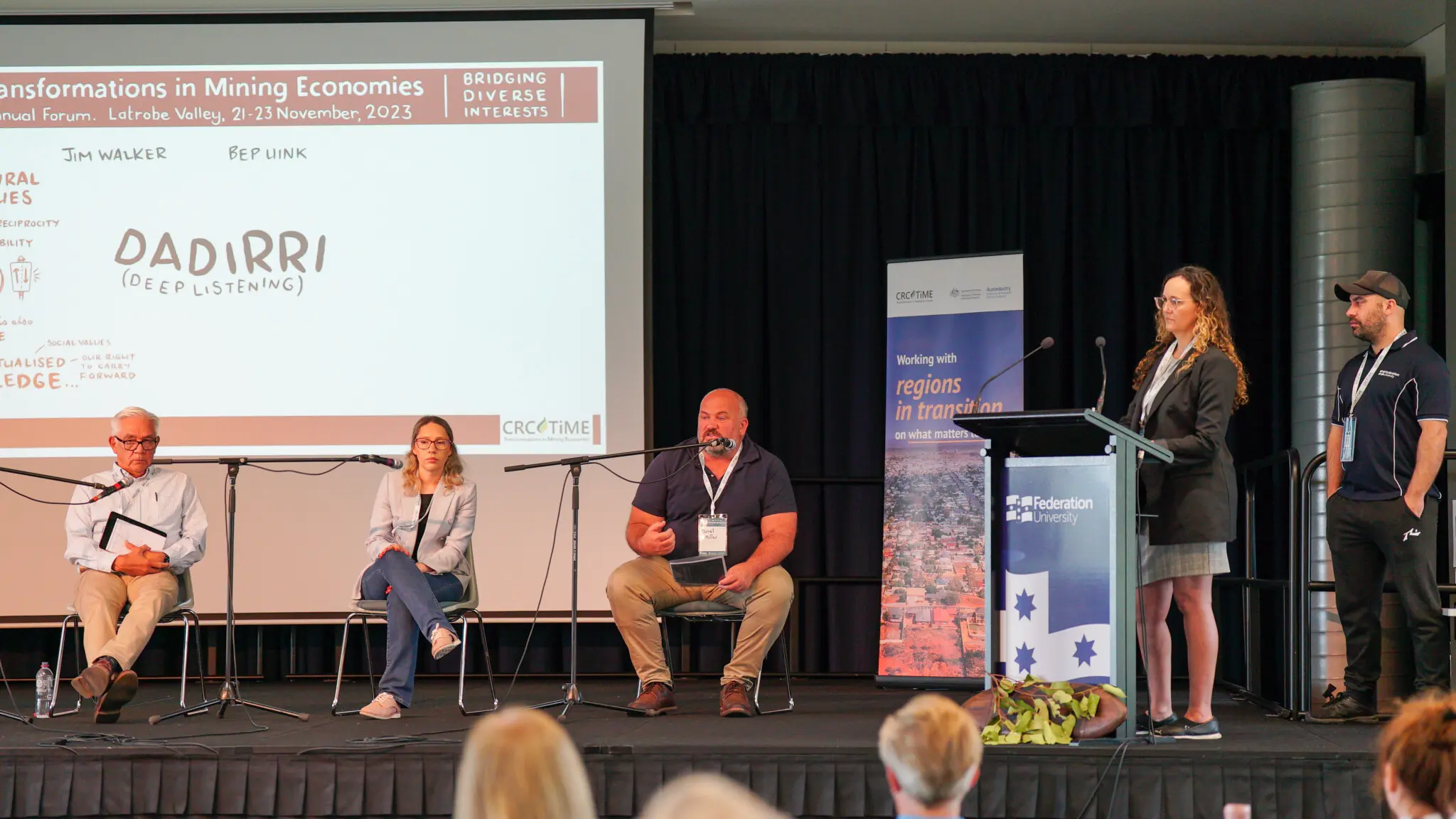We provided an update on actions to implement our First Nations Inclusion Strategy in our 2022-23 Annual Report.
Guided by our First Nations Inclusion Strategy, we strive to work in a way that is culturally aware, respectful and impactful.
We know we still have a lot to learn, and are working to improve and change our systems and processes over time.
Highlights across the strategy’s four focus areas are noted below.
Leadership and governance
- Caroline Williams, a Yamatji woman, started as Engagement Manager (First Nations) in January 2023 to provide strategic advice and support.
- Strengthened arrangements to support FNAT to give advice with new operating procedures, regular Chair updates to the Board, a dedicated travel and engagement budget and expanded membership.
- FNAT provided advice on various projects at four meetings during 2022–23, with another in October 2023.
- Worked to develop appropriate classifications for projects, recognising current inclusion opportunities and future expectations.
Impact and translation
- Commenced process to expand staff cultural awareness through face-to-face and online training as well as recognition of cultural events.
- Developed culturally appropriate resources about us for partners and community.
- Delegates heard from the Barada Barna Aboriginal Corporation as part of the pilot Cross-regional Knowledge Exchange in early July 2023.
- Continued to build relationships and share research findings, including with visits to the Pilbara, Kununurra, Darwin and the Latrobe Valley.
Research and capability
We made significant inroads in enhancing First Nations Inclusion across our research portfolio with:
- Project 4.9 National Pit Lakes Initiative (underway) includes a specific component on First Nations and regional community aspirations, engagement and understanding of pit lakes. Caroline Williams was also embedded in the project team during 2023.
- Gunaikurnai Land and Waters Aboriginal Corporation joining Project 1.7 Collaborative planning in the Latrobe Valley (Stage 1). Stage 2 is in development with plans for a First Nations-led Indigenous Reference Panel
- a specific module on Indigenous cultural values in addition to other critical information about First Nations partnerships incorporated into the world-first Mass Open Online Course on Foundations of Mine Closure and Sustainable Transitions.
- opportunities for Indigenous businesses to provide input into the landmark ‘Enabling mine closure and transitions: Opportunities for Australian industry’ report (Project 3.14).
Participatory frameworks
- Worked to support increased First Nations representation at events, including our own Annual Forums and the AusIMM Life of Mine Conference.
- First Nations VET pathways project co-designed with Indigenous peoples and organisations.
- Working with several Pilbara Traditional Owner groups about the potential to support local priorities.
Other highlights
The Annual Report also highlights other activities relating to First Nations people, organisations and initiatives, including:
- investing in education and training (pages 20 – 21).
- development of the First Nations VET pathway project case study (page 21).
- an all-Indigenous panel opening the 2023 World Mining Congress Special Symposium on Mine Closure and Transitions (pages 22 and 26).
- lessons from Canada to support regional cumulative effects assessment, particularly lessons about Indigenous-led assessments (page 24).
- through External Relations and Impact activities (pages 32 – 33).
- the ‘Foundations for Indigenous Inclusion’ final report, released in February 2023 (page 58).


